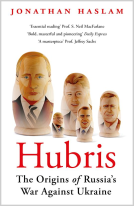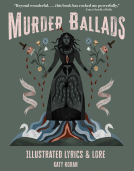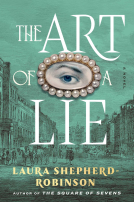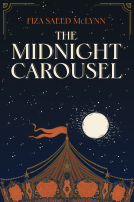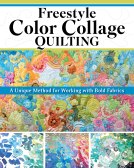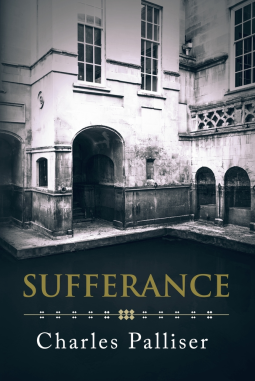
Sufferance
by Charles Palliser
This title was previously available on NetGalley and is now archived.
Send NetGalley books directly to your Kindle or Kindle app
1
To read on a Kindle or Kindle app, please add kindle@netgalley.com as an approved email address to receive files in your Amazon account. Click here for step-by-step instructions.
2
Also find your Kindle email address within your Amazon account, and enter it here.
Pub Date May 01 2024 | Archive Date Dec 31 2024
Talking about this book? Use #Sufferance #NetGalley. More hashtag tips!
Description
From the author of the international bestseller The Quincunx
"Palliser’s novel shares some superficial similarities with last year’s Booker winner, Prophet Song – a family in crisis navigating an authoritarian regime – but is a more well developed and satisfying work." —The Guardian
Set in Eastern Europe during the Second World War. When his nation is invaded and occupied by a brutal enemy, a well-intentioned man persuades his wife that they should give temporary shelter to a young girl who is at school with their daughter. He has no idea that the girl belongs to a community against whom the invader intends to commit genocide. Days stretch into weeks and then months while the enemy’s pitiless hatred of the girl’s community puts all of the family in danger. Nobody outside the family can be trusted with the dangerous secret and the threat from outside unlocks a darkness that threatens to derail them all. From the internationally bestselling author of The Quincunx (over a million copies sold worldwide), comes a deeply unsettling psychological novel about the hideous decisions that people are forced to make when living under tyrannical regimes.
Marketing Plan
Wide pre-order and marketing campaign across the US, Canada, and the UK. Advance review copies available. Events and signings to be announced.
Wide pre-order and marketing campaign across the US, Canada, and the UK. Advance review copies available. Events and signings to be announced.
Available Editions
| EDITION | Other Format |
| ISBN | 9781771838856 |
| PRICE | $18.95 (USD) |
| PAGES | 175 |
Available on NetGalley
Featured Reviews
 Reviewer 1269626
Reviewer 1269626
Sufferance tells a story about a family that takes in a girl who is separated from her family due to war.
This book is different from most that I’ve read. There are no chapters and it reads like the author is recalling the events from memories to the reader. It is also vague on some details like names, places, and events. It reminds me of events that happened during WWII in Europe.
The narrator is a father of two girls and one of them has a schoolmate whose family is forced to be away from her. The narrator and his family take the girl in thinking that it will be a temporary thing and that her wealthy father will reward them for their kindness. The girl quickly shows her true colors and the family is facing difficult choices with the possibility of dangerous consequences.
This book was very intriguing. The narrator seemed to think he made the morally correct choices but there was always a selfish undertone to the choices he made. I was surprised at how he rationalized some of his decisions. As someone who studies history, I saw how people who were living in Germany occupied areas during the rise of the Nazi party might have done some of the same things.
* Special thank you to NetGalley and the publisher for early access to this book in exchange for an honest review.
This is a book that gives you pause for thought.
It starts innoculously enough with the youngest daughter of a family telling her parents about her friend whose family have more or less abandoned her with only a maid in their family home whilst they are away. However whilst the parents and younger brother are gone the country has been taken over by a vicious enemy who, it soon becomes apparent, abhor the community to which the girl and her family belong.
After only a short time the father narrating the book persuades his family that they should take the girl in to live with them. This is not altruism as he believes that when the girl's wealthy father returns home he will be well rewarded for his care of the girl.
As time goes on it becomes clear that the enemy are prepared to go to any lengths to eradicate the girl's whole community and with this comes the knowledge that not only the girl herself but the whole of her "foster" family are now at risk.
Charles Palliser's novel is incredibly powerful. The insidious threat of the enemy, the veiled threats of exposure from neighbours and relations, the increasing tensions within the household all serve to build the pressure within the novel until you find yourself breathlessly turning each page.
I suppose what stands out with this book is the way that Palliser keeps the girl completely ignorant of what is happening in the wider community until almost the end of the book. The tension is ramped up so slowly that you begin to wonder how the story will end.
Truly wonderful but horrifying story telling. Highly recommended.
Thankyou to Netgalley and Guernica for the advance review copy.
 Lisbeth L, Reviewer
Lisbeth L, Reviewer
This was a very interesting read. It takes place somewhere in Europe during World War 2, but the author never specifies the country. In truth it could be many different countries during the war. The narrator is the husband & father of a family with 2 daughters who befriend a young girl left without her parents when occupation takes place. The girls comes to live with the family before her “community” is banished by the new government. The ensuing struggle of what to do with the girl as restrictions on the “community” deepen creates a sinister underlying strain on the entire family. In the end, the father is left with the question “How do I protect the girls while still protecting my family?”
Thanks to Net Galley for the ARC!
This book was quite different from the ones I normally read but I found it very intriguing. The story was set in WW2, about a family that takes a girl into their home and looks after her who has been separated from her own family during the war.
There were no chapters in this book. It was written very well by the narrator, still horrifying to read.
The family wanted to send the girl back to her own community but so many obstacles were in the way and it became impossible
I found it very strange the girl was ignorant throughout the whole book by the narrator. I really do wonder how it would end
Thank you Netgalley
 Megan H, Bookseller
Megan H, Bookseller
I am a huge fan of Charles Palliser, and the way his fiction operates on so many different levels – and Sufferance is another sublime example.
Set in an unnamed East European city after Nazi occupation, the (also unnamed) narrator is an ordinary government employee, living an unremarkable life with his wife and two daughters, when one daughter mentions a girl at school whose parents have been stuck across the border, and unable to get back to the city. The narrator and his family decide to take her in, until her family returns.
This is the set up for an extraordinary piece of writing – a parable told in simple language, but with a constant underscore of menace, which grows louder as the book continues. The girl belongs to a community being targeted by the invaders, and this makes the situation increasingly difficult. That so much remains unnamed here (the city, the occupiers, the community) only serves to make the story more sinister – emphasising, as it does, that this is a situation that could arise anywhere, at any time.
Sufferance is a brilliant, devastating novel, which stays with the reader for a long time after the end.
 Fran E, Reviewer
Fran E, Reviewer
No good deed goes unpunished." "Following the sudden unexpected invasion, everything closed for two weeks; schools, offices, banks, and many shops." In the third week, the capital fell and a new regime was installed. The Enemy divided the country into the Western Zone containing the Old City, and the Eastern Zone. A father narrates, in diary style, events that paralleled Eastern Europe during World War II. His family would slowly sink into quicksand as good intentions faded and morals were compromised.
It started with an act of kindness. When the invader requisitioned trains for troop movement, the girl's parents and brother who were visiting in the Western Zone, were unable to board a train back home. Phone lines were cut, postal service suspended. The daughter was left in the care of a "ill-mannered servant" at their wealthy mansion. Our narrator, his wife, and two daughters agreed to host this school acquaintance of the younger daughter until her parents returned.
She was bright and bubbly. "It appeared...that she was completely unconcerned about the fact that the rest of her family were elsewhere and possibly in grave danger...". She was boastful and spoke at length of her family's villa, beside a lake, in the country. "On my salary- I could only provide my daughters with two weeks by the sea.".
Benjamin Franklin famously said, "Guests, like fish, begin to smell after three days." The family was between a rock and a hard place. Unfortunately, the girl belonged to "the protected community" whose rights were slowly being compromised. The girl claimed that her parents would reimburse the family for the outlay of money on her behalf. Perhaps employment opportunities would open up. Open ended kindness was not just rooted in altruism.
Desperate times called for desperate measures as days turned into weeks and months. The girl showed no gratitude. Ration cards issued for nourishing a family of four had to feed five. The girl was manipulative and often had temper tantrums. Neighbors became curious and made veiled threats. Self preservation would lead to a lack of moral judgement as the host family became undone. A highly recommended read of historical/ literary fiction.
Thank you Guernica Editions and Net Galley for the ARC in exchange for an honest review.
Sufferance is set in an unnamed country in Eastern Europe that has been occupied and partitioned by an enemy during the Second World War. In fact the country is just the first of the many unnamed things in the novel. We never learn the name of the narrator, his wife, his two daughters or even the young girl he takes into his home in an act of (misplaced, as it turns out) charity. Or perhaps it’s self-interest as she belongs to a wealthy family – or so it appears. What we do know is that her surname marks her out as a member of an ironically named ‘protected community’ whose day to day lives and livelihoods are being progressively constrained by the occupying power. Again, the community is not named, the reader instead left to draw their own conclusions.
An unsettling air of menace permeates the book which only increases as our narrator finds he has placed himself and his family in danger by taking in the girl. His role as a government official tasked with enforcing some of the occupying power’s increasingly severe actions against the girl’s community complicates things further. He also faces his wife and daughters’ growing unhappiness with the girl’s presence. Spoiled and prone to untruthfulness, she is not a child it is easy to love.
Our narrator is forced to take more and more extreme measures to prevent the girl’s presence being discovered by the authorities. It’s difficult not to feel unsettled by some of these thing, and their obvious parallels, but then I think that’s the author’s intention. And to make us question the things we might be prepared to do – or not do – in similar circumstances. The simple prose with which the story unfolds only adds to the sinister feel of this skilfully crafted, dark little tale.
The War, a country in Eastern Europe, the Western Zone, the Eastern Zone, the Enemy, the Occupation, minority members of the “other” community; a “decontamination” of the nation’s source of infection – all ambiguous names and phrases, but unquestionably the reader is placed in a WWII story.
As the father narrates this story, we learn that he, his wife, and two daughters have taken in a young school friend to stay until she can be reunited with her family, who are trapped in the Western Zone after the invasion with all means of communication severed. This family is of the “other” community.
With a self-serving motive, the narrator is convinced that in caring for this child, her wealthy father and owner of a successful business will be so grateful that he will be rewarded with a better job. As he moves among his neighbors and co-workers and we see his interactions with them, his self-importance and self-righteousness are evident. It becomes clear the father is an unreliable narrator. Is this young girl as spoiled and selfish as he claims? Is he really the magnanimous person he perceives himself to be? With this girl in their midst, paranoia, internal conflict, and discord are tearing apart the family. While the occupying regime tightens its authority, rules and consequences become increasingly harsh, and the family is trapped in a situation with any choice resulting in severe consequences. It is too late to register her as required; they cannot continue to secret her.
A sinister undertone lurks throughout the narrative, and a real sense of doom overshadows. In the father, Palliser has created a rare character who in turns can be sympathetic and contemptible. His story races to an ending that leaves the reader stunned. This novel will evoke a full range of emotions. An impressive novel not to be missed.
Historical Novels Review, May 2024
The details hardly matter - they're recognizable enough, after all. An unnamed man recounts the tale of an unspecified war and oppressive regime, and of the girl he and his family try to hide from the Enemy - and all the unraveling effects of that, and each subsequent, decision. It's Aa stifling, brutal, tightly-packed story that unfolds slowly but ruthlessly, the tension mounting with a sense of claustrophobic inevitability, spiraling toward a gut punch of an ending. I've long been a fan of Charles Palliser's work, and Sufferance is admittedly very little like his earlier books - but it shares with them Palliser's gift for making every word matter, crafting prose that can sidle under your skin and slip a knife between your ribs.
Thank you to the publisher for the advance review copy.
 Cherise W, Book Trade Professional
Cherise W, Book Trade Professional
A taut and chilling novel that takes as its basis a country invaded, a family’s act of kindness that is fraught and increasingly complicated. We aren’t told what country this is, or the time period, though there are no cell phones mentioned. But the focus of the invaders becomes a minority ethnic group, the forced disclosure of their assets, the taking of those assets by the state, the forced relocation of that group into a walled part of the old city, the strictures, regulations, their identity cards, hangings of those found to be helping that besieged ethnic minority. It is the start of the Holocaust perhaps, or perhaps it is another Holocaust- which is already happening in less regulated ways in parts of the world, and which seems more and more likely today in others. A family takes in one of their younger daughter’s school friends when her parents are cut off in the part of the country where the invaders now rule. The school friend is from that ethnic minority, from a wealthy family recently moved to the old capitol, but she is no Anne Frank, instead wily and cunning despite her young years, manipulative, selfish, a liar about the glittering life she and her family led before the invasion - she doesn’t grasp what is actually happening. The father, a lowly accountant working for the state, imagines the gratitude of the girl’s parents when they realize what he has done for her- imagines the girl’s father will give him a much better job, will reimburse him for all he is spending to keep the girl safe. Inner dissension roils the family, the older daughter having to give up her room, the demands of the girl that the father tries to and the noose around them all only tightens - his own family is at severe risk, as colleagues of his from that ethnic group begin to disappear. Told in a calm, dispassionate manner, one feels the fear, as well as the very delayed understanding of what is happening, of how easily people succumb, follow the rules, how doing good when confronting evil is not at all easy. Compelling and haunting.
Thanks to Guernica World Editions and Netgalley for the arc.
 Laura S, Reviewer
Laura S, Reviewer
A chilling book. A father narrates the experience of his family in war time. We are not told the place or time but it is clear that this takes place within an occupied country during the Second World War. A very ordinary family. An act of kindness (not entirely altruistic) which leads with stark inevitability to a horrifying conclusion. A very plausible imagining of how the thin veneer of civilisation can vanish in the face of the dehumanisation of war. None of the characters are named which contributes to the sense of detachment through which the father unemotionally tells the story of how he grapples with a series of problems as the war begins to impinge directly on his family. Having read the book, I was interested to find what the author had said about it: https://www.crimetime.co.uk/sufferance-charles-palliser-on-his-new-novel/
Thanks to Guernica and Netgalley for the ARC.
 Abigail N, Reviewer
Abigail N, Reviewer
The narrator of this dark, disturbing novella is a low-level government clerk in a nameless city, which has recently been occupied by an invading army. To begin with, life continues largely as it was before, except that the narrator's younger daughter informs him that one of her schoolmates, whose father is a wealthy man and a member of an ethnic minority, has been left on her own, her parents stranded in the now-cut-off capital city. (Eventually it becomes clear, from the progress of the events Palliser recounts, that Sufferance's setting can only be Poland under Nazi occupation; but the narrator continues to use non-specific terms throughout the story, referring to "the occupiers", "the capital", or "the community" to which the girl belongs, and whose rights are increasingly constrained.) The narrator and his wife decide to invite the girl to live with them, a decision they reach through a combination of genuine compassion and concern, motivated self-interest—the narrator reasons that the girl's father will not only reimburse him for the expense of her care, but will offer him a job in his business—and an apparent inability to grasp the seriousness of the situation. This last trait is shared by the girl herself, who is not only convinced that her parents will soon return to claim her, but continues to cling to her sense of superiority, lording her family's wealth over the narrator's two daughters, and insisting that he continue to give her the allowance she was accustomed to receive from her parents.
This failure to see, or to acknowledge, what is happening around them soon infects all the characters in the novel. In his work life, the narrator soon observes the curtailing of "the protected community"'s rights, becoming involved in the project of cataloguing, and eventually appropriating, their property. Workplace closures and an economic downturn cut the family's income to a fraction of what it was. The narrator's older daughter is unable to find work, and soon begins associating with local hooligans who support the occupying force. But within the home, the family and their guest continue to enact a seemingly ordinary domestic drama. The girl's selfishness leads to squabbles with the two daughters, the narrator's wife complains about the girl's supercilious manners and sense of entitlement, and when outside restrictions are placed on her—when she's forced to hide in the apartment full-time, for example—her response, as well as that of everyone else in the family, is to complain.
At the same time, one wonders how much of this obliviousness is an act. The narrator's voice is analytical and detail-oriented, reporting with equanimity such events as his brother in law being forced to divorce his wife, who is also a member of the protected community. It's easy to suspect that there are considerations beneath the surface that he is concealing—from himself, perhaps, as much as the readers. When he somehow arranges to take in the girl without anybody else knowing where to find her, is this a simple, bumbling error, or a sign that he always had sinister designs against her? When he goes back to her home to try to access her father's safe, is he safeguarding her property, or trying to take it for himself? Our impression of the girl, too, feels incomplete. Is she truly as oblivious as the narrator describes? Or are her foot-stamping threats to report to her father how badly she's been treated a desperate coping mechanism, a way of avoiding acknowledging the immense danger she's in, and her inability to trust her protectors?
For most of its length, reading Sufferance is an exercise in mingled dread and bemusement. At some points in the novel the narrator seems on the verge of abandoning his charge out of sheer lack of awareness—having realized that he has committed an illegal act by hiding the girl, he tries to convince her to slip into the newly-formed ghetto, reasoning that she will be happier among her own kind. Other times, it almost seems as if the family will unwillingly, and with only partial awareness of having done it, fall into becoming righteous gentiles. But as time passes and the trap into which the protected community has been led begins to close, it becomes clear that what Palliser is writing is neither a moral parable nor a dark comedy. We spend the novel frustrated that its characters are not better, more aware people, but instead keep almost stumbling into either heroism or perfidy. As their options dwindle and the danger they are in mounts, however, we eventually have to recognize that even the best version of these people might have found themselves helpless in the face of the great machine of evil that has surrounded them. Sufferance ends with an unspeakable act, and Palliser, without excusing it, uses it to remind us that heroism is rare not only because people fail to embody it, but because the world around them is designed to stamp it out.
Readers who liked this book also liked:
Laura Shepherd-Robinson
General Fiction (Adult), Historical Fiction, Mystery & Thrillers
